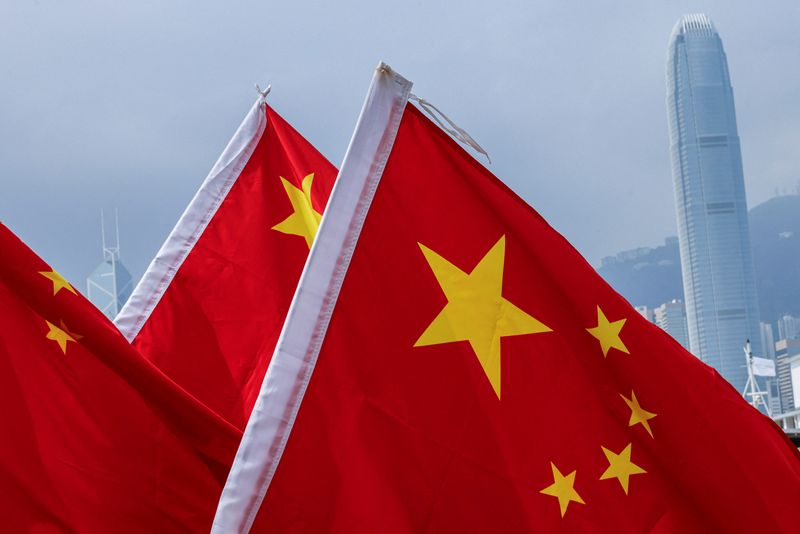By Duncan Miriri
NAIROBI (Reuters) -Chinese lenders approved loans worth $4.61 billion to Africa last year, marking the first annual increase since 2016, an independent study showed on Thursday.
Africa secured more than $10 billion in loans a year from China between 2012-2018, thanks to President Xi Jinping's Belt and Road Initiative (BRI), but the lending fell precipitously from the start of the COVID-19 pandemic in 2020.
Last year's figure, a more than three-fold increase from 2022, shows China is keen to curb risks associated with highly indebted economies, the study by Boston University's Global Development Policy Centre found.
"Beijing appears to be looking for a more sustainable equilibrium level of lending and experimenting with a (new) strategy," said the university centre, which runs the Chinese Loans to Africa Database project.
The new data comes as Beijing prepares to host African leaders next week for the Forum on China-Africa Cooperation, which takes place every three years.
There were 13 loan deals last year involving eight African countries and two African multilateral lenders, the study found.
Last year's biggest items include a nearly $1 billion loan from China Development Bank to Nigeria for the Kaduna-to-Kano Railway and similar size liquidity facility by the lender to Egypt's central bank.
China has vaulted to the top bilateral lender for many African nations like Ethiopia in recent years.
It has lent the continent a total of $182.28 billion between 2000-2023, the Boston University study found, with the bulk of the finances going to Africa's energy, transport and ICT sectors.
Africa featured prominently in the initial years of BRI, as China sought to recreate the ancient Silk Road and extend its geopolitical and economic influence through a global infrastructure development push.
China, however, started to turn off the cash spigot in 2019, a shift that was accelerated by the pandemic, leaving a series of incomplete projects around the region, including a modern railway meant to link Kenya with its neighbours.
The reduction in loans was caused by China's own domestic pressures and growing debt burdens among African economies. Zambia, Ghana and Ethiopia have gone into protracted debt overhauls since 2021.
More than half of the loans committed last year, or $2.59 billion, were to regional and national lenders, underscoring Beijing's new strategy, the study by Boston University found.
"Chinese lenders' focus on African financial institutions most likely represent a risk mitigation strategy that avoids exposure to African countries' debt challenges," it said.
Nearly a tenth of 2023 loans were for three solar and hydropower energy projects, the study found, illustrating a desire by China to move into funding renewable energy instead of coal-fired power plants.

Still, the discernible trends in last year's figures did not offer a clear direction of China's financial engagement with the continent, the study showed, since Chinese institutions also wrote loans to ailing economies like Nigeria and Angola.
"It remains to be seen whether China's partnerships in Africa will retain their quality," the Global Development Policy Centre said.